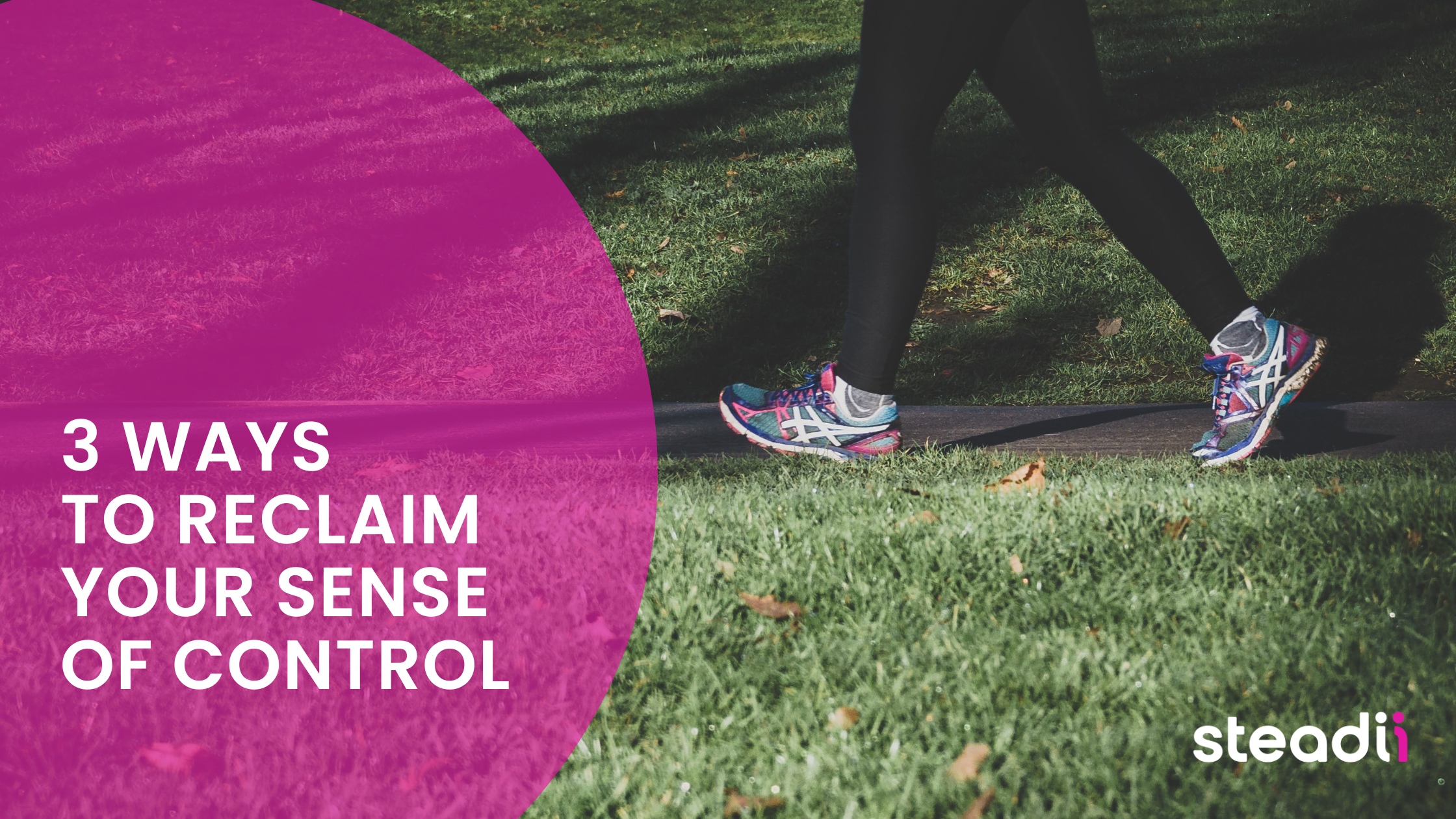Caregivers: Three ways to reclaim your sense of control
What if you reclaimed your caregiving role as a personal choice rather than something that was dropped in your lap? In this post, we invite you to practice expanding how you view choices to reclaim your sense of control as you continue in your caregiving journey.
Photo by Arek Adeoye on Unsplash
Do you find yourself thinking:
How did I get here?
I never imagined myself in this situation.
This wasn’t my choice.
In a complicated scenario like caregiving, it’s easy to experience a diminished sense of choice. This can lead to feeling stuck or trapped. You're not alone if you feel stripped of your ability to choose how you focus your time, energy, or finances.
Let’s explore how you view choices and how you can honor the choices you make every day to reclaim your sense of control.
First, let’s establish your identity as a whole human being outside your caregiver role.
You are valuable just for being you. Set your caregiver role aside for a moment and think about everything that makes you who you are.
What do you like about yourself? What are you proud of? What do you want other people to know about you? What do you need to keep being you? Who are you at your core?
Note: Sometimes, it helps to write these answers down in a journal, in your notes app, or even on a sticky note for future reference. If that feels helpful, we encourage you to do that.
Next, let’s explore the decisions you make every day.
What time did you decide to get out of bed this morning? What did you choose to wear for the day? What did you decide to do for breakfast?
Each day, you make thousands of decisions from a place of innate wisdom only you can provide yourself. It’s worth celebrating small choices that honor what’s best for you. This might look like taking a 20-minute walk to get fresh air rather than watching a show. Or, it might mean watching the show and pausing everything else because it brings you joy.
When you are present in the moment and consciously choose what your mind, heart, and body need, you are tapping into your innate wisdom.
Note: If you’ve been busier than ever or feel burnt out, you may feel disconnected from your innate wisdom. Practice pausing an extra few minutes throughout your day to look inside and reconnect with your innate wisdom.
Lastly, practice expanding and assessing your options during more significant caregiving decisions.
As you practice greater awareness of who you are and your sense of choice in smaller moments, you build an essential muscle that will help you feel more confident regarding more significant decisions.
For example, consider a decision like hiring outside caregiving help. This decision may seem outside your control due to budget constraints, the opinions of others, or your loved one’s preferences. While all of these factors are worth consideration, let’s practice expanding and assessing your options for a decision like this.
Get curious about your choices by asking yourself these questions:
1. Am I assuming things to be true, or do I know them to be true?
For example: Am I assuming I cannot afford help, or have I researched and compared prices on multiple options? Am I assuming insurance will not cover assistance or have I explored this option fully? Am I assuming my loved one will react poorly, or am I staying open to various outcomes?
2. How will my decision affect my loved one, and how will it affect me as the primary caregiver?
For example: Which choice provides my loved one the most safety and comfort? Am I sacrificing long-term positive results to avoid short-term uncomfortable conversations? Which choice will equip me best to show up for my loved one? Which option is in the best interest of the type of relationship I hope to have with my loved one?
3. Are you giving each factor in your decision the weight it deserves?
For example: Is the resistance from another family member worth your time and energy, or is it something they need to address in themselves? Do you feel guilt or shame around asking for help that outweighs your ability to make a practical decision?
Even if you go through this entire process and still make the same decision that you would have without all of this reflection, there is freedom in knowing you chose to explore your options. There is power in knowing that you consider the best interests of yourself and your loved one. Recognizing that this decision did not happen to you and instead you made it happen is a gift you give yourself. Celebrate that.
If you could use support regaining a sense of control in your life as a caregiver, our Steadii Advocates are standing by to help. Sign up with Steadii today to start working with an advocate for free.


